The Sacredness of March 25th, 1821
On March 25th, Greeks commemorate the 202nd anniversary of the Greek War of Independence in 1821 (1821-1829), decreed a national holiday in 1838.
The Greek War of Independence 1821 was fought for the sake of “Faith and Homeland” [υπέρ Πίστεως και Πατρίδος]. With Christ beating in their hearts[ii] , they fought for the safety of their families, for their Holy Christian Faith and for their homeland’s Freedom.
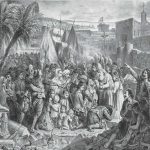 The Faith, our Hellene ancestors’ Faith in the Heavenly and Eternal, can not be subtracted from Freedom’s equation. This Faith, grounded in the theories and contemplations of ancient philosophers[iii], formulated in the dogmas of early Christianity, and time-tested over 400 years of occupation and slavery, sustained the hope for our Hellene ancestors in God’s promise for Justice and Freedom and the shape the ethos of every Hellene generation.[The Communion of the Greeks at Missolonghi by Raffet, 1826.[i]]
The Faith, our Hellene ancestors’ Faith in the Heavenly and Eternal, can not be subtracted from Freedom’s equation. This Faith, grounded in the theories and contemplations of ancient philosophers[iii], formulated in the dogmas of early Christianity, and time-tested over 400 years of occupation and slavery, sustained the hope for our Hellene ancestors in God’s promise for Justice and Freedom and the shape the ethos of every Hellene generation.[The Communion of the Greeks at Missolonghi by Raffet, 1826.[i]]
Although, over 400 years many smaller battles were waged against the occupying force of Ottoman Rule, on March 25 of 1821, the Greek War of Independence 1821 was blessed by Bishop Paleon Patron Germanos[iv], when he raised flag of the Greek Revolution at the Monastery gate of Agia Lavra.
March 25 is also a holy day, when Christians world-wide celebrate the Annunciation of the Virgin Mary by the Archangel Gabriel. On this day, even if for one day, the heavenly and the earthly, the material and the immaterial, the visible and the invisible merge unconfused as to their bearing for all Hellenes; as we commemorate national identity and spiritual allegiance to God Almighty in the most non-partisan manner.
The Annunciation of the Virgin Mary announced the hope of Salvation for mankind, and it was on this very day when the hope for Freedom was declared, thus amalgamating the holy celebration with the Greek War of Independence.
Modern Challenges to the Legacy of the Greek War of Independence, as outlined in the 2022 annual March 25th message[v] by HEC (www.greece.org), are a relevant concern. The Greek War of Independence of 1821 was not a partisan war, nor was it a war for control and power. Greek Heroes, with the people’s support, when fighting the feared enemy in 1821, an enemy who was more skilled and who outnumbered the Greek army, fought for “Faith and Homeland” [υπέρ Πίστεως και Πατρίδος] against all odds, when the only choice was Freedom or Death [Ελευθερία ή Θάνατος]: the threat of a spiritual, intellectual and existential Death.
The Renaissance period in western Europe, outside Greece, experienced a very unique intellectual awakening. While Europe was recovering from the famine and pandemics of the middle ages, Greeks were exposed to the threat of their immediate annihilation on a daily basis. Education was meagre and taxation made food scarce, while the heaviest taxation levied against the Greeks was the enslavement of their children[vi], through the practice of enforced child recruitment into military units. How dreadful to lose their children to the Janissary.
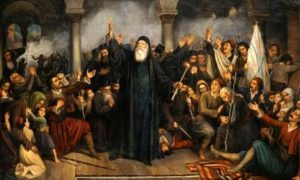
En revanche, under Ottoman Rule the Orthodox Church counts over a thousand New-Martyrs[vii]. Indeed, 166 new-martyrs are catalogued by name in the Synaxari (lives of Saints) with the total number exceeding a thousand New-martyrs[viii] during Ottoman Rule, who are all commemorated on the third Sunday of Pentecost. Among the better known New-martyrs[ix] are Kosmas of Aitolia, Philothei the Righteous of Athens, George of Ioannina, George the goldsmith, George the tailor, Demetrios from Philadelphia-Asia Minor, Ephraim the Great Martyr of Nea Makri, and many more. They martyred for their Faith, for being Christian, for speaking Greek, for staying true to their heritage, for the simple reason of not wanting to convert to Islam.
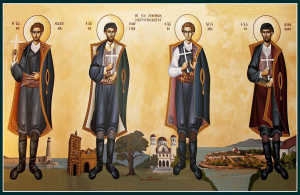 [Four New-Martyrs of Rethymno Crete]
[Four New-Martyrs of Rethymno Crete]
Under 400 years of slavery, Hellenes had proven their endurance and their patience. Even the hesitance for war among some ecclesiastical and secular leaders was justified, since, it is human lives, regardless of origin, who are the victims of war. When presented with a problem, Hellene heritage counts the Gordion Knot[x] presented to Alexander the Great in 333 B.C. as a metaphor and a compass. Though Alexander the Great employed a determined nature and used his sword to cut through the constraints of the Gordion Knot, his choice demonstrated an absence of the expected ingenuity and patience. However, with respect to the Greek War of Independence 1821 patience was outlived and it was time for ingenuity to rise.
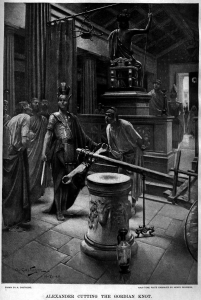 [André Castaigne 1898-1899]
[André Castaigne 1898-1899]
Hellenes, Philhellenes and all world citizens are troubled by the hostile climate among world leaders. Let us turn to Hellas and the known and unknown Heroes of the Greek War of Independence for inspiration and hope. Let us turn to the unknown and known Greek Heroes of 1821 to charter a course for peace, because the war which was waged in 1821 was one of honour, and not the speculation of a calculated move.
Let us cry out with true joy Zeto-Ζήτω. Long-Live Greece, our Hellas, and Hellenes, Philhellenes and Greeks world-wide. Freedom is a cherished value and one we fought for with honour.
[i] https://www.greekrevolution.org/exhibition/freedom-or-death/men-of-action/
[ii] https://egoch.org/wp-content/uploads/cal-big-pdf/2021_WALL.pdf , page 2
[iii] www.greece.org/philosophy
[iv] https://www.pemptousia.gr/2016/12/o-paleon-patron-germanos-1771-1826/
[v] https://www.greece.org/march-25th-the-greek-war-of-independence-1821/?fbclid=IwAR1OakDQWJDQWlWt_ap47EMQiG5RtlSRXtSz4fmLtfB__JlAdlDgBvdshMM
[vi] https://www.greece.org/history/bicentennial-1821-2021/
[vii] Iconographied Book of Saints of the Orthodox Church, Bishop Galaktion P. Gamile, Villia, Attica, 2002, page 483
[viii] https://en.wikipedia.org/wiki/New_Martyr#:~:text=The%20Greek%20Orthodox%20Church%20traditionally,been%20almost%20ignored%20in%20academia.
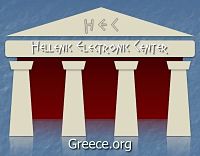

 [
[
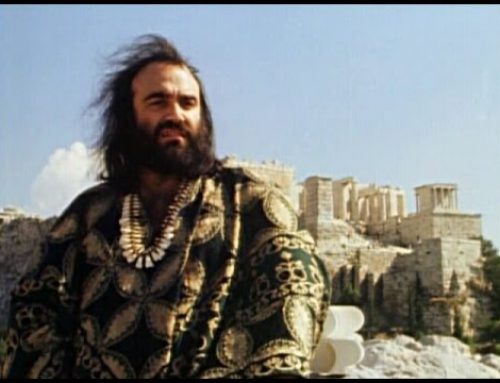
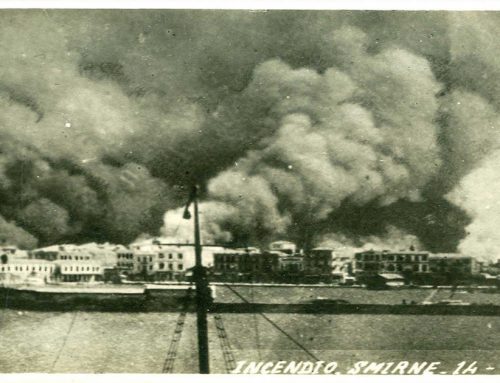
Leave A Comment